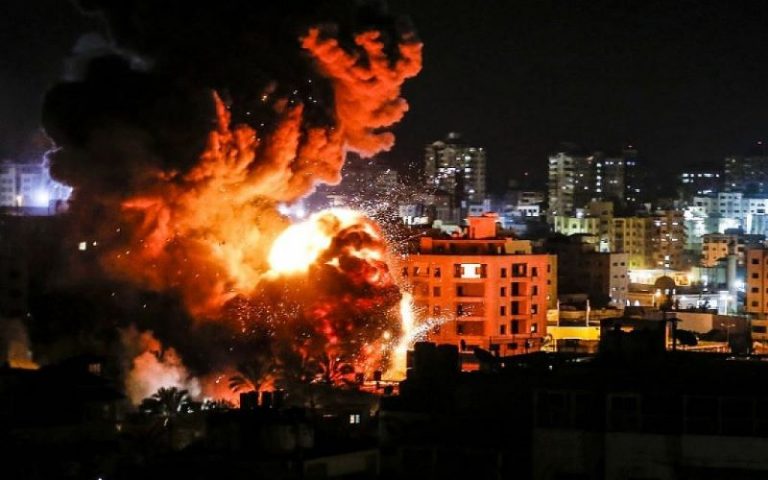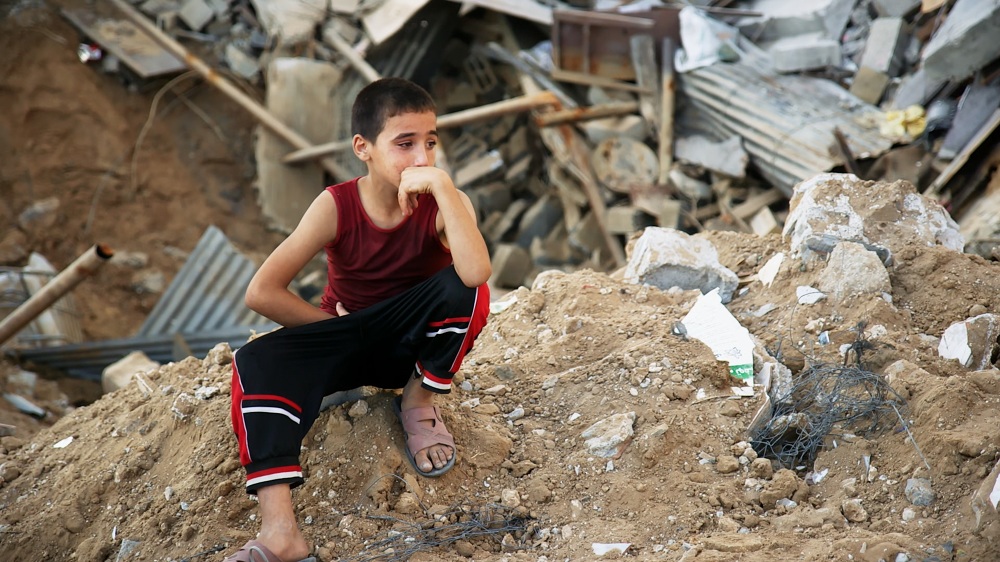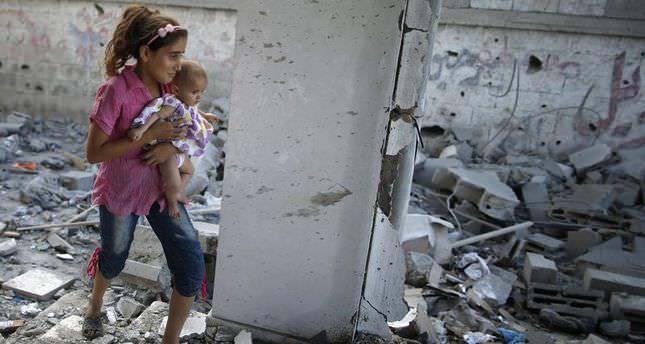
The outcome of the war is uncertain, as other parties are invited to join, making it a war with no certain end!
Ashraf Aboul-Yazid, Egypt
President, Asia Journalist Association (AJA)
This year, on 15 May, the Middle East region marked the 75th anniversary of the Nakba in two different ways; Arab and Palestinian peoples commemorated the colonization of their homeland, while the occupying State of Israel celebrated the establishment of their country. One date, two opinions, and a lot have been written on how to bridge the gap between them.
The Nakba is an Arabic word, similar to defeat, or setback, so it is not something that Arabs celebrate as they have been living many of setbacks, generation after generation.
When Arab armies tried to get their land back, they even got another defeat, and they lost more lands, basically in Egypt (Sinai Peninsula ) and Syria (Golan Heights) when there were occupied by Israel in the aftermath of the Six-Day War in June 1967. United Nations Security Council Resolution 242 was adopted unanimously by the UN Security Council on November 22, 1967, under Chapter VI of the UN Charter, referring to the “inadmissibility of the acquisition of territory by war and the need to work for a just and lasting peace in the Middle East in which every State in the area can live in security”.

Operative Paragraph One in UN resolution 242 said: “Affirms that the fulfillment of Charter principles requires the establishment of a just and lasting peace in the Middle East which should include the application of both the following principles:(i) Withdrawal of Israeli armed forces from territories occupied in the recent conflict; (ii) Termination of all claims or states of belligerency and respect for and acknowledgment of the sovereignty, territorial integrity and political independence of every State in the area and their right to live in peace within secure and recognized boundaries free from threats or acts of force.
For the following six years, the occupying State of Israel didn’t respond to the U.N. resolution. Over those years, the expulsion of over 750,000 Palestinians from their homes, farms and lands constituted a crime against humanity. Arab countries were open for those refugees, not only in neighboring Egypt, Jordan and Syria, but in the other Arab states in the Gulf and beyond.
Egyptian President Anwar Sadat (25 December 1918 – 6 October 1981) had a proposal for a comprehensive settlement of the Egyptian-Israeli dispute, which was secretly submitted to US foreign minister Henry Kissinger (1923) in February 1973. Despite the fact that it met most of Israel’s requirements regarding peace, Sadat’s proposal was rejected by Golda Meir (May 3, 1898- December 8, 1978), Prime Minister then, who refused to return the territories occupied in 1967. Meir’s stand did not change even when, in April 1973, Israel’s leadership concluded that the only alternative to the diplomatic process was war – which would break out soon. By making this decision, Golda Meir and her colleagues opted for war rather than peace and turned the October 1973 Yom Kippur War into ‘a war of choice’. On October 6, 1973, the two Arab armies of Egypt and Syria launched their war to get their land back.
After winning the war, on 9 November 1977, Sadat startled the world by announcing his intention to go to anywhere, even to Jerusalem and speak before the Knesset (the unicameral legislature of Israel) to discuss peace. Shortly afterward, the Israeli government cordially invited Sadat to address the Knesset in a message passed to him via the US ambassador to Egypt. Ten days after his speech, Sadat arrived for the groundbreaking three-day visit, which launched the first peace process between Israel and an Arab state.
Although most of Arab states refused Sadat’s act, by boycotting Egypt and shifting the Arab League from Cairo to Tunisia, Sadat signed the Camp David Accords with Israel, under the patronage of USA to comprise two separate agreements: “A Framework for Peace in the Middle East” and “A Framework for the Conclusion of a Peace Treaty between Egypt and Israel”. The preamble of the “Framework for Peace in the Middle East” starts with the basis of a peaceful settlement of the Arab – Israeli conflict. The agreed basis for a peaceful settlement of the conflict between Israel and its neighbors is United Nations Security Council Resolution 242, in all its parts.
Along the years, the only country that didn’t respond to the U.N. resolution nor respected it was the occupying State of Israel!
After years of refusal, the Palestinian diplomats tried to follow the path of Sadat. Oslo Accords, which are a pair of agreements between Israel and the Palestine Liberation Organization (PLO) and its leader Yasser Arafat (August 1929 – November 11, 2004), were signed: the Oslo I Accord was signed in Washington, D.C., in 1993; and the Oslo II Accord, was signed in Taba, Egypt, in 1995. Both accords marked the start of the Oslo peace process aimed at achieving a peace treaty based on Resolution 242 and Resolution 338 of the United Nations Security Council, and at fulfilling the “right of the Palestinian people to self-determination”. The Oslo process began after secret negotiations in Oslo, Norway, resulting in both the recognition of Israel by the PLO and the recognition by Israel of the PLO as the representative of the Palestinian people and as a partner in bilateral negotiations.

The Palestine Liberation Organization (PLO), the Palestinian National Liberation Movement Fatah, the Islamic Resistance Movement (Hamas), the Palestinian Islamist organization Palestinian Islamic Jihad, which is the second largest group in the Gaza Strip, were all representing Palestinian people. After Oslo Accords, Gaza Strip has been dominated by Hamas and Fatah. Among the notable outcomes of the Oslo Accords was the creation of the Palestinian National Authority, which was tasked with the responsibility of conducting limited Palestinian self-governance over parts of the West Bank and the Gaza Strip; and the international acknowledgement of the PLO as Israel’s partner in further peace talks.
What Hamas fighters did on October 7, 2023 was a direct consequence of two causes; the failure of peace operations and the continuing assault of Israelis
The PLO couldn’t get any positive results other than having the fragile frame of a state with no authority in the West Bank, while Gaza Strip is still dominated by Hamas. The Israelis continued to neglect the recognition of the State of Palestine and its right to self-determination or its people’s right to return to homeland. The government of Israel continued in its plans to build Jewish settlements on Palestinian lands, even in the West Bank and East Jerusalem, which are one of the most prominent causes of the conflict between Israel and the Palestinians. The international community believes that Israel’s resort to settling its population on lands, occupied during the 1967 war, is not legal.
The United States was a party to this international consensus, and had always indicated that these settlements were “illegal,” but it changed its position, especially after US Secretary of State Mike Pompeo announced that his government no longer considered Jewish settlements in the West Bank illegal.
What Hamas fighters did on October 7, 2023 was a direct consequence of two causes; the failure of peace operations and the continuing assault of Israelis, not only by building illegal settlements on occupied Palestinian lands but also continuing the attacks and desecration of Al-Aqsa Mosque, mosque in Jerusalem, located at the terminal point of the Prophet Muhammad’s Isra’ journey, considered one of the holiest places for Muslims.
After 50 years of October War, Hamas started its own liberating war. And now, Israel is committing war crimes by cutting off water and electricity supplies to Gaza to act out of sheer vengeance in response to those attacks by Hamas. Palestinians needed justice, not revenge, and what Israel is doing now is revenge, sheer vengeance.
Palestinian and Arab casualties inflicted by war or combat started before the establishment of Israel, to change the demography of a country that lived peacefully under the Ottoman Empire. After WWI, and the defeat of the Ottoman Empire, Balfour Declaration, (November 2, 1917), statement of British support for “the establishment in Palestine of a national home for the Jewish people.” It was a gift declared by those who don’t own, to those who didn’t deserve, as Arab historians say,
The Balfour Declaration, issued through the continued efforts of Chaim Weizmann and Nahum Sokolow, Zionist leaders in London, fell short of the expectations of the Zionists, who had asked for the reconstitution of Palestine as “the” Jewish national home. The declaration specifically stipulated that “nothing shall be done which may prejudice the civil and religious rights of existing non-Jewish communities in Palestine.” The document, however, said nothing of the political or national rights of these communities!

Israel is committing war crimes by cutting off water and electricity supplies to Gaza to act out of sheer vengeance
The peace initiative by Sadat and the peace accords by PLO Arafat failed. The Arabs have been seeking peace, while the occupying State of Israel is seeking its own benefit on the expense of other people, without thinking to accept peace or international laws for decades. In recent years, other Arab countries normalizing relations with Israel, in an indication understood by Hamas that promises of peace and justice for Palestinian people are collapsed. In 1973, Golda Meir and her colleagues opted for war rather than peace, and after 50 years, history is repeating itself, as current Israeli PM Netanyahu and his colleagues opted for war rather than peace.
As I am writing (Wednesday , October 18, 2023), after its terrorist attack against Al Ahly Hospital, Israeli forces appear to be preparing to launch a ground operation on Gaza, after blockading the region, cutting off water, electricity, fuel and food supplies to its 2.3 million impoverished inhabitants. Israeli Defense Minister Yoav Gallant, speaking to soldiers near the Gaza fence, said: “Hamas wanted a change and it will get one. What was in Gaza will no longer be.”
We thought that future roles of Russia, China, Turkey and Saudi Arabia could help stopping the war, but four days ago Israeli Air Force jets bombed the two Syrian airports in Damascus and Aleppo while Iran and its alliance in Lebanon Hezbollah; the Lebanese Shia Islamist political party and militant group, led since 1992 by its Secretary-General Hassan Nasrallah, also sent their warnings with some initiative operations, while Egypt is striving to hold a regional summit to restore peace, as the humanitarian aid was prevented from entering Gaza Strip by Israeli forces that hit Rafah crossing with bombs three times, so for. Middle East experts believe the conflict is about to enter a more destructive phase, but the outcome of the war is uncertain, as other parties are invited to join, making it a war with no certain end!
________________
 Ashraf Aboul-Yazid is an eminent poet, novelist, travelogue writer of Egypt who has authored over three dozen books. His poetry has been translated into over a dozen languages. He is Editor-in-Chief of Silk Road Literature Series.
Ashraf Aboul-Yazid is an eminent poet, novelist, travelogue writer of Egypt who has authored over three dozen books. His poetry has been translated into over a dozen languages. He is Editor-in-Chief of Silk Road Literature Series.